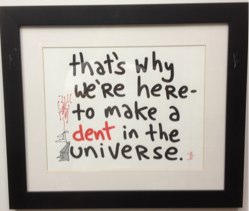I’ve taken my shots at Zynga before, but this New York Times article is just odd.
It talks about crying employees, of course (see my article here) and warns that “Zynga’s tough culture risks a talent drain,” and “signs of trouble are emerging.”
The problem? A focus on metrics? Emphasis added: “But the heavy focus on metrics, in this already competitive industry, has also fostered an uncompromising culture, one where employees are constantly measured and game designers are pushed to meet aggressive deadlines. While some staff members thrive in this environment, others find it crushing. Several former employees describe emotionally charged encounters, including loud outbursts from Mr. Pincus, threats from senior leaders and moments when colleagues broke down into tears.”
Measuring employees and pushing them to meet aggressive deadlines doesn’t sound all that outrageous to me, to be honest.
The infamous stock option renegotiations were once again surfaced as well, but the article failed to point out that a grand total of four employees, out of thousands, were affected.
But the article also points out the perks. I’ve never had perks like this:
The company has added data centers and expanded teams to ease the burden on its engineers. It is also encouraging managers to schedule a bigger buffer between project phases and to give teams the week off before a game’s debut. Zynga — which offers employee perks like acupuncture, Friday happy hours and a cafeteria with organic food — is also spending millions on focus groups and other initiatives to strengthen its manager training programs.
Acupuncture?
And:
Zynga dispenses lavish gifts like vacations and $100,000 in vested stock. After the game Mafia Wars reached a milestone two years ago, Zynga sent the team to Las Vegas to celebrate, buying some 80 plane tickets and providing $500 in cash for each person and luxury hotel accommodations, according to one former senior employee.
Next, rival Electronic Arts’ fingerprints are all over this story. There are two quotes from EA executives:
“I expect a lot of game and tech companies will begin recruiting Zynga’s talent after their equity becomes liquid,” said Gabrielle Toledano, head of human resources for Electronic Arts. “Competitors will make the case that they offer much more compelling opportunities for creative people.”
and
“We’ve learned that when companies treat talent as a commodity, the consequences are severe,” said Ms. Toledano of Electronic Arts. “It takes years to repair a reputation.” (probably referring to this EA lawsuit)
And there’s also a quote by famous venture capitalist Roger McNamee saying Zynga will end up a cautionary tale (McNamee, with all due respect, is the man who predicted Palm would kill the iPhone).
“Zynga should be an example of entrepreneurship at its best,” said Roger McNamee, a co-founder of the venture capital firm Elevation Partners. “Instead it’s going to be a Harvard Business School case study on founder overreach — this will be a cautionary tale.”
The fact that McNamee’s former founding partner at Elevation Partners, John Riccitiello, is now the CEO of EA, isn’t mentioned. Nor is the fact that Elevation Partners tried at one point to invest in Zynga.
And Zynga, in the IPO quiet period, can’t do a damn thing to fight back.
All’s fair in love and war, and with the hundred plus former EA employees and executives now at Zynga, I’m not surprised they’re fighting back. But the New York Times should have known better than to become a tool for EA. That article just smells bad.

